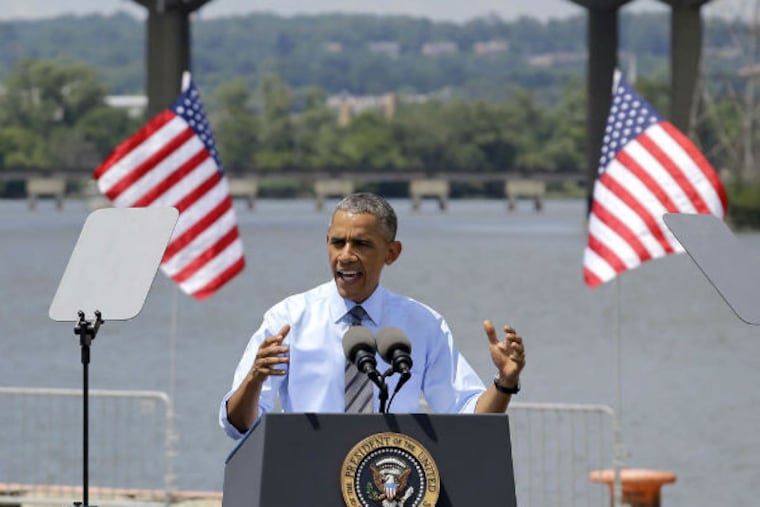Inquirer Editorial: Alternate routes
Philadelphia area drivers still waiting for crews to patch winter potholes on major state roads can toot their horns in celebration of one thing: At least those repairs don't depend entirely on Congress getting its act together on transportation funding.

Philadelphia area drivers still waiting for crews to patch winter potholes on major state roads can toot their horns in celebration of one thing: At least those repairs don't depend entirely on Congress getting its act together on transportation funding.
After taking their own roundabout route, Harrisburg lawmakers and Gov. Corbett boosted Pennsylvania gas taxes and other fees last year, which will drive another $2.3 billion a year toward highway, bridge, and transit upkeep. The welcome infusion of funds should go a long way toward repairing thousands of deteriorating bridges before they collapse. The legislation has already allowed SEPTA to shelve a doomsday budget that would have crippled its transit system, which is critical to the region's economy and environment.
Beyond that, Southeastern Pennsylvania transportation planners have begun deciding how to use another $11 billion, a one-third increase in funding. Projects such as improvements to I-95 and a rail link to King of Prussia will help keep the region competitive for decades to come.
There is no such blue-sky planning in New Jersey, however, where Gov. Christie and others have refused to raise one of the nation's lowest gas taxes. A series of increasingly dodgy workarounds has served as a poor substitute for needed revenue.
Similarly, on the federal level, with the Highway Trust Fund set to go bust later this summer - and not for the first time - Congress looks set to approve another short-term patch that would keep funds flowing until next spring. Rather than take up President Obama's proposed $302 billion, four-year spending plan, to be funded partly by closing corporate-tax loopholes, the House this week approved a nearly $11 billion stopgap extension of funding through May; the Senate is working along the same lines. On Thursday, the president visited the site of last month's I-495 bridge closure in Wilmington to draw attention to the need for robust infrastructure funding.
It would be best to avoid the stop-and-go uncertainty threatening more than 117,000 transportation projects nationwide that could grind to a halt in weeks without a funding plan. Indeed, with such a huge documented backlog of infrastructure needs, the predictability that comes with stable funding is critical to keeping the nation safely on the move.
Nor does the cost have to be prohibitive. Pennsylvania's gas tax, for instance, will cost the average motorist slightly more than $2.50 a week. That's not much considering the sizable dividend in major projects moving ahead. And if state Department of Transportation crews get around to filling those remaining potholes, even better.